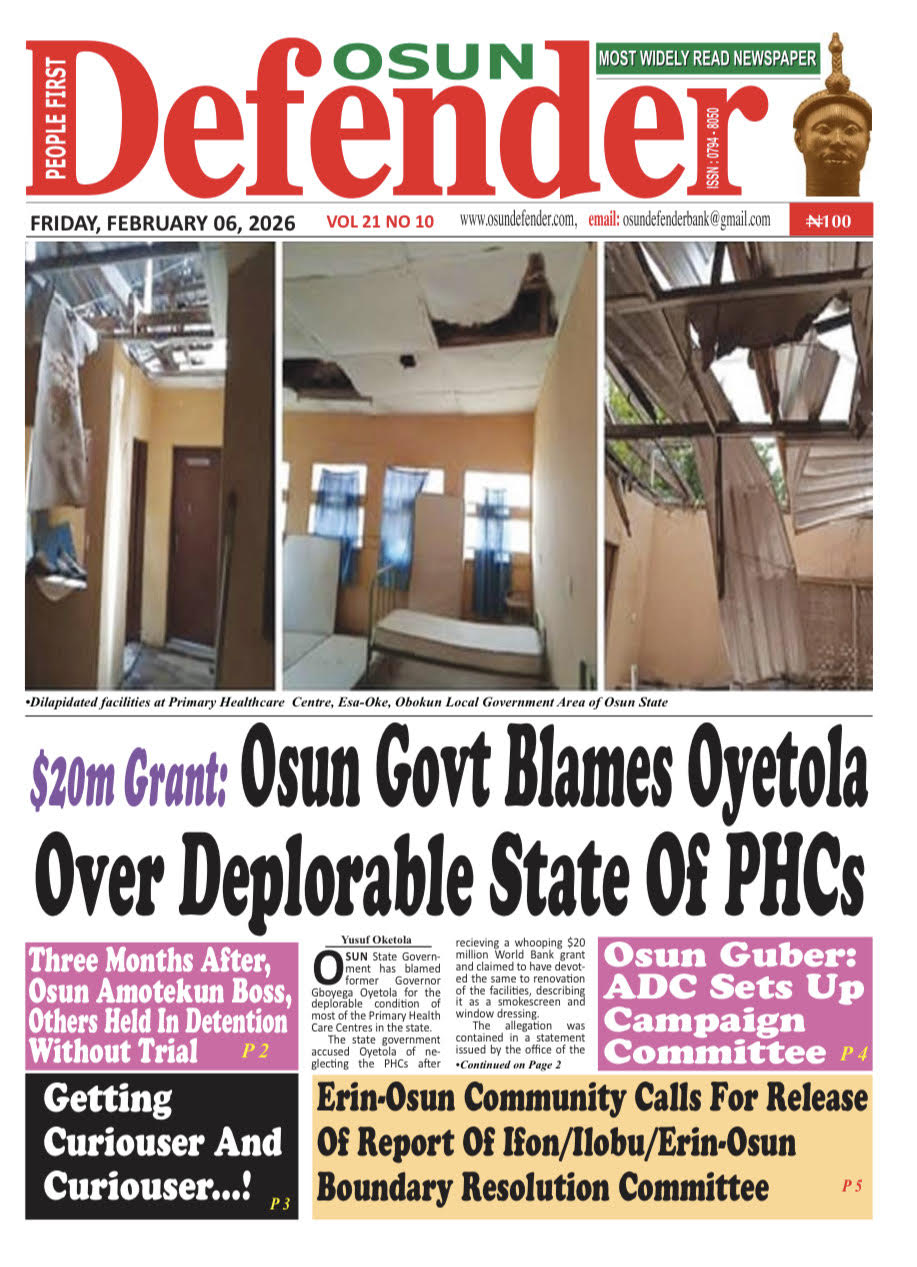Answering The Resignation Question By Saratu Abiola

Nigeria is a complicated country, isn’t it?
For one thing, nothing is ever as it seems. Here is what we know: we know that our president is sick but we are not quite sure the nature of his illness; if he’s groaning in agony in bed or walking gingerly around the Villa recuperating. The cause of his illness is unknown, but it was serious to have him in the UK for weeks on end and see him looking even skinnier on his return. We know that he has missed Friday prayers at the mosque; that he has not showed up to the past couple of Federal Executive Council meetings; that he has not been seen in public recently. We also know that Aisha Buhari has told us that her husband’s condition is not “that bad”, which obviously means that it is. Besides, according to our constitution, a medical panel assembled by the National Assembly will have to deem the president unfit to continue in office, and that has not happened yet. Given the inability of our National Assembly to do any substantive work on anything these days, it also probably will not happen.
See? Complicated.
It is tempting to draw a neat parallel between what we are currently seeing and what happened under now-late President Yar’Adua, but there are some key differences to keep in mind here. For one thing, Nigerians are a lot more aware of the dangers ahead, and a lot quicker than we were because we sadly have some experience with this kind of thing. Also, this time, when our president travels abroad for treatment, whatever we think of the fact that he is travelling for treatment, he has handed over formally to his deputy. This means that there has been less talk of a power vacuum. Another important difference is that, President Buhari is not the first northern president who has faced dire health issues, and there are political interests who are already working on counter-messaging. The propaganda machinery is already in motion to allege all sorts, even that the President has been poisoned in Aso Villa to make him sick. Such talk will only serve to galvanize regional interests and send the country hurtling towards an even messier, more hate speech-filled election season in 2019.
It is easy to say that Vice President Osinbajo should take over as president, that he should nominate a deputy and keep things moving. After all, he has somehow managed to retain his aura of ‘capableness’ and while keeping his smile intact, and even crack a joke or two when the camera pans on him. The trouble, however, is the small issue of our recent history. There is no need to rehash here how much trouble it was for our then-Vice President to become our Acting President. I have not forgotten how the country seemed to be at a standstill until then-Acting President Goodluck Jonathan evolved into a presidential candidate then won. Then-Acting President Jonathan was essentially a “lame duck”, to borrow from American political parlance, until he won the presidential election. Moreover, any kind of resignation at this point from President Buhari will lead to jostling for who will be a President Osinbajo’s Vice. One senses that whoever gets selected as Vice President to a President Osinbajo will face fierce political opposition, meaning that we might face a political standstill where almost nothing will be done but political posturing until 2019.
Our experience with recent elections tells us that when the political situation is tenuous, nothing of note happens: not investments, not signing of much needed legislation, nothing. If you think nothing of note is happening now, even less will happen if Osinbajo is to take over as president. A “lame duck” president will only signal political uncertainty. There will be doom and gloom predicted ahead of the 2019 elections, and once again Nigeria will be a hot ticket for international journalists looking for some election-related excitement.
And what will happen if we simply maintain status quo? Well, basically what we are seeing now: A Presidency not operating at full capacity, bobbing and weaving like Anthony Joshua, away from the electorates’ reasonable questions as to the health of its president, with the determination to remain opaque.
This political calculation is tiring, because Nigeria has entirely too much work to do. Our economy is a shambles, our internal security leaves a lot to be desired, our healthcare and education are in dire straits, we have a humanitarian crisis that has created mass displacement of millions of Nigerians, and that is just a short list of what currently ails us. Ensuring clear leadership at the top is key for the country and it seems obvious that the President should resign if he needs to. But as usual, there will be no clean sailing if those clamouring for resignation get what they want.







